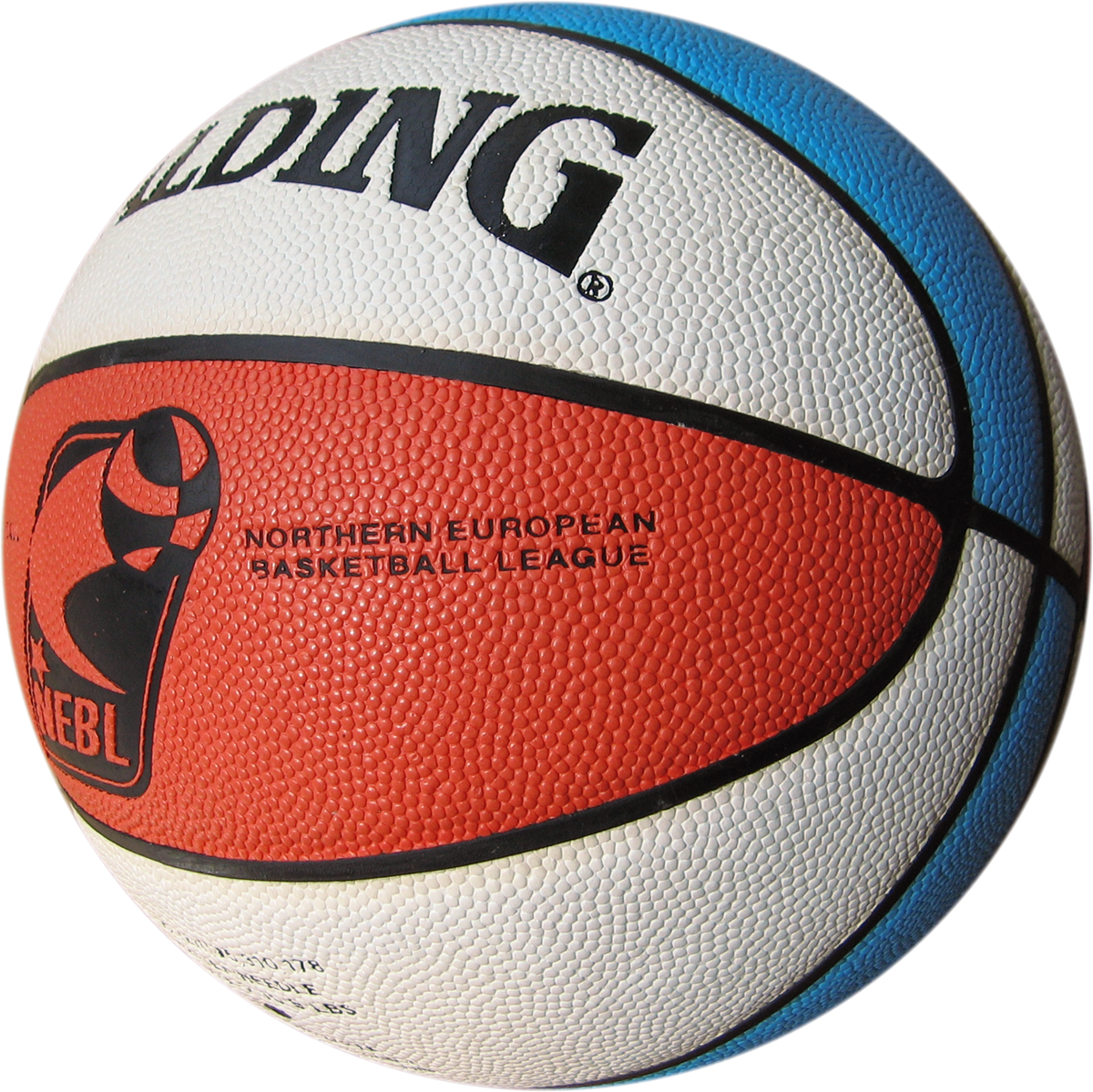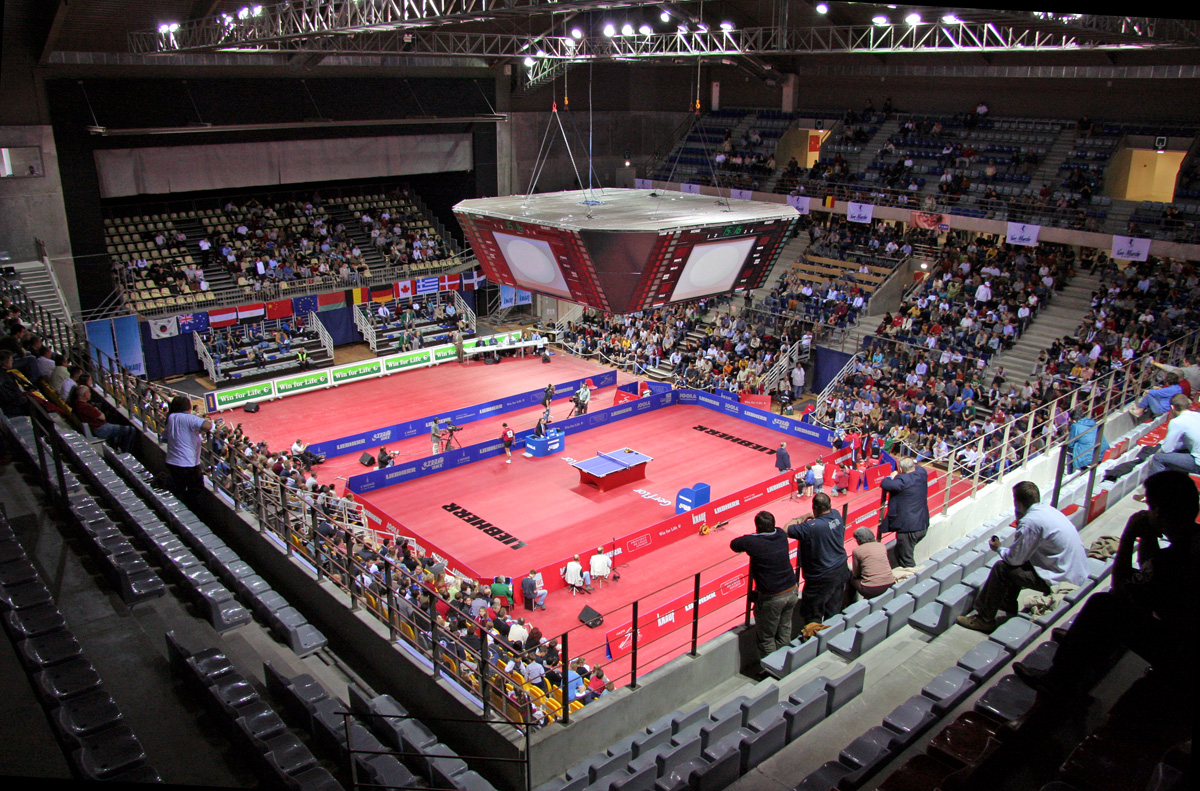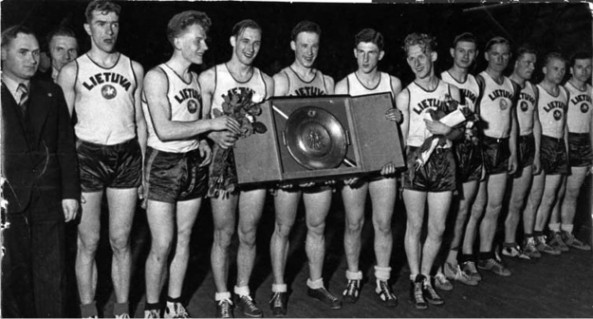|
Stanislav Yeryomin
Stanislav Georgiyevich Yeryomin (russian: Станислав Георгиевич Ерёмин; born February 26, 1951 in Sverdlovsk, Soviet Union), last name also spelled Eremin and Yeremin, is a prominent retired Russian professional basketball player and coach. During his playing career, at a height of 1.81 m (5'11 ") tall, he played at the point guard position. He is also a retired Russian Army Colonel. Club playing career Yeryomin spent most of his career with CSKA Moscow. He was a member of the FIBA European Selection, in 1979 and 1981. National team playing career Yeryomin was a member of the senior Soviet Union national basketball team that won the bronze medal at the 1980 Moscow Summer Olympic Games. Coaching career Yeryomin was a 4 time Russian Men's Coach of the Year (2004, 2005, 2006, 2007). Awards and accomplishments Club playing career *9× USSR League Champion: (1976, 1977, 1978, 1979, 1980, 1981, 1982, 1983, 1984) *2× FIBA European Selection: (1979, ... [...More Info...] [...Related Items...] OR: [Wikipedia] [Google] [Baidu] |
Yekaterinburg
Yekaterinburg ( ; rus, Екатеринбург, p=jɪkətʲɪrʲɪnˈburk), alternatively romanized as Ekaterinburg and formerly known as Sverdlovsk ( rus, Свердло́вск, , svʲɪrˈdlofsk, 1924–1991), is a city and the administrative centre of Sverdlovsk Oblast and the Ural Federal District, Russia. The city is located on the Iset River between the Volga-Ural region and Siberia, with a population of roughly 1.5 million residents, up to 2.2 million residents in the urban agglomeration. Yekaterinburg is the fourth-largest city in Russia, the largest city in the Ural Federal District, and one of Russia's main cultural and industrial centres. Yekaterinburg has been dubbed the "Third capital of Russia", as it is ranked third by the size of its economy, culture, transportation and tourism. Yekaterinburg was founded on 18 November 1723 and named after the Russian emperor Peter the Great's wife, who after his death became Catherine I, Yekaterina being the Russian form o ... [...More Info...] [...Related Items...] OR: [Wikipedia] [Google] [Baidu] |
North European Basketball League
The North European Basketball League, or Northern European Basketball League (NEBL), was a short-lived regional professional basketball league. It was founded in 1998, by Šarūnas Marčiulionis and Dmitry Buriak. The league was the first commercial project of a regional league in Europe, and initially intended for participation of the best basketball teams from five countries - Lithuania, Latvia, Estonia, Sweden, and Finland. History In 1999, the first North European Basketball League competition took place, involving eight teams, from the aforementioned countries. Eventually, the tournament started to lose its regional characteristics, as it began involving more clubs from Central (Poland, Czech Republic), Western (Denmark, Germany, Belgium, Netherlands, UK), and Eastern (Russia, Ukraine, Belarus) Europe; then, from Southern Europe (Bulgaria, Macedonia, Romania, Serbia), and even from Israel and Turkey. There were 31 teams, from 19 countries (from Israel to UK), participating i ... [...More Info...] [...Related Items...] OR: [Wikipedia] [Google] [Baidu] |
EuroBasket 1981
The 1981 FIBA European Championship, commonly called FIBA EuroBasket 1981, was the 22nd FIBA EuroBasket regional basketball championship, held by FIBA Europe. The competition was hosted by Czechoslovakia and took place from 26 May to 5 June 1981. Venues Participants Twelve national teams took part in the competition, divided in 2 six-teams groups. First stage The winner of each match earns two points, the loser one. The first three teams advance to the final stage, the last three team take part in the classification round. Group A – Bratislava Group B – Havířov Places 7–12 Places 1–6 in Prague Finals Finals Final standings # # # # # # # # # # # # Awards Team rosters 1. Soviet Union: Valdis Valters, Anatoly Myshkin, Vladimir Tkachenko, Sergejus Jovaiša, Alexander Belostenny, Stanislav Yeryomin, Sergei Tarakanov, Andrey Lopatov, Nikolay Deryugin, Aleksandr Salnikov, Gennadi Kapustin, ... [...More Info...] [...Related Items...] OR: [Wikipedia] [Google] [Baidu] |
EuroBasket 1979
The 1979 FIBA European Championship, commonly called FIBA EuroBasket 1979, was the 21st FIBA EuroBasket regional basketball championship, held by FIBA Europe. Twelve national teams affiliated with the International Basketball Federation entered the competition. The competition was hosted by Italy. Mestre, Siena, Gorizia and Turin were the venues of the event. Venues Results First round In the preliminary round, the 12 teams were split up into three groups of four teams each. The top two teams in each group advanced to the Final Round (with the score between them counting in the final round as well) while the bottom two were sent to the classification round to play for 7th to 12th Places (with the score between them counting in the classification round as well) Group A – Mestre Group B – Siena Group C – Gorizia Classification Round – Turin In the Classification Round played the teams that finish 3rd and 4th in their Preliminary round Grou ... [...More Info...] [...Related Items...] OR: [Wikipedia] [Google] [Baidu] |
EuroBasket 1977
The 1977 FIBA European Championship, commonly called FIBA EuroBasket 1977, was the twentieth FIBA EuroBasket regional basketball championship, held by FIBA Europe. Venues Group stage Group A – Liège Group B – Ostend Knockout stage 5th to 8th place 9th to 12th place Final standings # # # # # # # # # # # # Awards Team rosters 1. Yugoslavia: Krešimir Ćosić, Dražen Dalipagić, Mirza Delibašić, Dragan Kićanović, Zoran Slavnić, Žarko Varajić, Željko Jerkov, Vinko Jelovac, Ratko Radovanović, Duje Krstulović, Ante Đogić, Joško Papič (Coach: Aleksandar Nikolić) 2. Soviet Union: Sergei Belov, Anatoly Myshkin, Vladimir Tkachenko, Aleksander Belostenny, Stanislav Eremin, Mikheil Korkia, Valeri Miloserdov, Vladimir Zhigili, Aleksander Salnikov, Viktor Petrakov, Vladimir Arzamaskov, Aleksander Kharchenkov (Coach: Alexander Gomelsky) 3. Czechoslovakia: Kamil Brabenec, Stanislav Kropilak, Zdenek Kos, Jiri Pospisil ... [...More Info...] [...Related Items...] OR: [Wikipedia] [Google] [Baidu] |
EuroBasket
EuroBasket, also commonly referred to as the European Basketball Championship, is the main international basketball competition that is contested quadrennially, by the senior men's national teams that are governed by FIBA Europe, which is the European zone within the International Basketball Federation. The competition was first held in 1935. The former Soviet Union holds the record for most gold medals with a total of 14. The tournament is generally held in August or September, in the offseason of major club competitions. The current defending champion is Spain, who won the 2022 title. History Beginning The first championships was held three years after the establishment of FIBA, in 1935. Switzerland was chosen as the host country, and ten countries joined. Only one qualifying match was played between Portugal and Spain. With a complicated formula, the final would see Latvia as champions. According to the rule at the time, the winner had to hold the following games. The fol ... [...More Info...] [...Related Items...] OR: [Wikipedia] [Google] [Baidu] |
1982 FIBA World Championship
The 1982 FIBA World Championship was the 9th FIBA World Championship, the international basketball world championship for men's teams. The tournament was hosted by Colombia from 15 to 28 August 1982. Qualification Venues Competing nations Preliminary round Group A Group B Group C Classification round Semifinal round Final round Third place playoff Final Final rankings Awards All-Tournament Team * Doc Rivers (USA) * Dragan Kićanović (Yugoslavia) * Juan Antonio San Epifanio (Spain) * Vladimir Tkachenko (USSR) * Anatoli Myshkin (USSR) Top 10 scorers (points per game) # Rolando Frazer (Panama) 24.4 # Ian Davies (Australia) 23.4 # Wilfredo Ruiz (Uruguay) 23.4 # Dié Drisa (Côte d'Ivoire) 21.6 # Dragan Kićanović (Yugoslavia) 21.1 # Oscar Schmidt (Brazil) 21.0 # Stanislav Kropilak (Czechoslovakia) 19.3 # Juan Antonio San Epifanio (Spain) 18.1 # Gustav Hraska (Czechoslovakia) 18.0 # Jay Triano ... [...More Info...] [...Related Items...] OR: [Wikipedia] [Google] [Baidu] |
Soviet Union National Basketball Team
The Soviet Union men's national basketball team ( rus, сбо́рная СССР по баскетболу, r=sbórnaya SSSR po basketbolu) was the national basketball team that represented the Soviet Union in international competitions. After the dissolution of the Soviet Union in 1991, the successor countries all set up their own national teams. Based on the number of medals, the basketball program of the former Soviet Union remains one of the most successful in the history of international basketball competitions. History EuroBasket 1947 The Soviets first competed in the European championship at EuroBasket 1947. They quickly established their dominance of the European field, winning both preliminary round games, all three semifinal round games, and the championship match against defending gold medallists Czechoslovakia. The Soviets outscored their opponents by an aggregate 126 points over their 6 wins, an average margin of victory of 21 points. EuroBasket 1951 After refus ... [...More Info...] [...Related Items...] OR: [Wikipedia] [Google] [Baidu] |
1978 FIBA World Championship
The 1978 FIBA World Championship was the 8th FIBA World Championship, the international basketball world championship for men's teams. The tournament was hosted by the Philippines from October 1 to 14, 1978 in Rizal Memorial Coliseum in Manila and Araneta Coliseum in Quezon City (both cities in Metro Manila). It was the first FIBA World Championship (now called the FIBA Basketball World Cup) held in Asia. Host selection On July 11, 1974 at the FIBA Congress held in San Juan, Puerto Rico, the Philippines was unanimously chosen as host after Argentina and Spain withdrew their bids. Venues (*) Temporarily reduced to 10,000 for the finals due to safety reasons. Competing nations Preliminary round Group A Group B Group C Classification round Semifinal round Final round Seventh place playoff Fifth place playoff Third place playoff Final Final rankings Awards All-Tournament Team * Krešimir Ćosić * Dra ... [...More Info...] [...Related Items...] OR: [Wikipedia] [Google] [Baidu] |
FIBA World Championship
The FIBA Basketball World Cup, also known as the FIBA World Cup of Basketball or simply the FIBA World Cup, between 1950 and 2010 known as the FIBA World Championship, is an international basketball competition contested by the senior men's national teams of the members of the International Basketball Federation (FIBA), the sport's global governing body. It is considered the flagship event of FIBA. The tournament structure is similar, but not identical, to that of the FIFA World Cup; both of these international competitions were played in the same year from 1970 through 2014. A parallel event for women's teams, now known as the FIBA Women's Basketball World Cup, is also held quadrennially. From 1986 through 2014, the men's and women's championships were held in the same year, though in different countries. The current format of the tournament involves 32 teams competing for the title at venues within the host nation. The winning team receives the Naismith Trophy, first awarded i ... [...More Info...] [...Related Items...] OR: [Wikipedia] [Google] [Baidu] |
Basketball At The 1980 Summer Olympics
Basketball at the 1980 Summer Olympics was the tenth appearance of the sport of basketball as an official Olympic medal event. It was held from July 20 to July 30 at the Olympiiski Indoor Stadium Olympic Games Official Report 1980 Moscow-Volume III /ref> and at the CSKA Sports Palace, both located in , |
1980 Summer Olympics
The 1980 Summer Olympics (russian: Летние Олимпийские игры 1980, Letniye Olimpiyskiye igry 1980), officially known as the Games of the XXII Olympiad (russian: Игры XXII Олимпиады, Igry XXII Olimpiady) and commonly known as Moscow 1980 (russian: link=no, Москва 1980), were an international multi-sport event held from 19 July to 3 August 1980 in Moscow, Soviet Union, in present-day Russia. The games were the first to be staged in an Eastern Bloc country, as well as the first Olympic Games and only Summer Olympics to be held in a Slavic language-speaking country. They were also the only Summer Olympic Games to be held in a self-proclaimed communist country until the 2008 Summer Olympics held in China. These were the final Olympic Games under the IOC Presidency of Michael Morris, 3rd Baron Killanin before he was succeeded by Juan Antonio Samaranch, a Spaniard, shortly afterwards. Eighty nations were represented at the Moscow Games, the smal ... [...More Info...] [...Related Items...] OR: [Wikipedia] [Google] [Baidu] |





